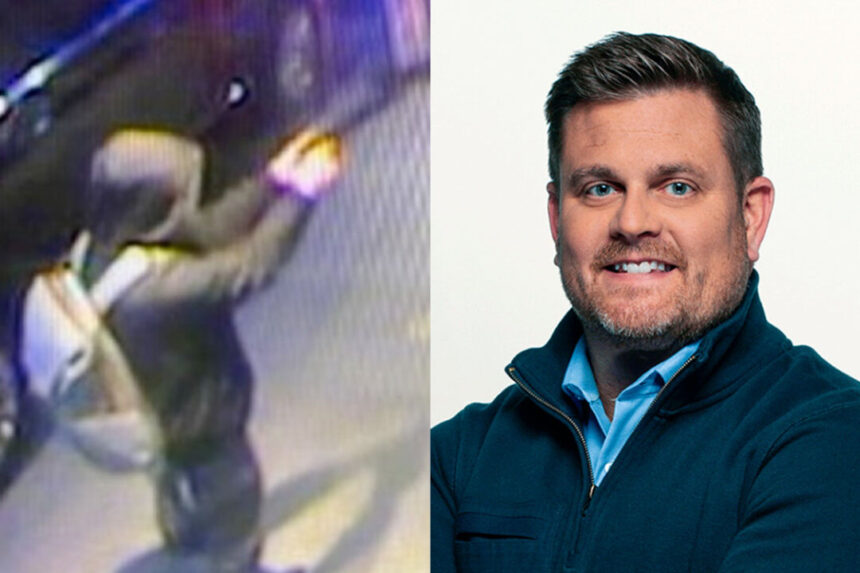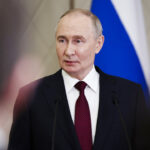Before becoming the CEO of UnitedHealthcare, Brian Thompson had made a lasting impression on a security expert who is now questioning the circumstances surrounding Thompson’s death. The expert, Philip Klein, who had previously provided security for Thompson, expressed disbelief at the lack of protection for the CEO as he walked alone in New York City on Dec. 4. Thompson was shot and killed by a gunman who fled the scene on a motorized bicycle, leaving authorities searching for the suspect.
Klein raised concerns about why a high-profile CEO like Thompson, with reported threats against him and access to company security, was left unguarded in a public setting. Despite UnitedHealthcare’s emphasis on employee safety, security officers were notably absent during the incident, prompting questions about the company’s security protocols.
The company released a statement expressing condolences and prioritizing support for Thompson’s family, employee safety, and cooperation with law enforcement in apprehending the suspect. Klein, drawing on his decades of experience in personal protection, highlighted the unusual nature of a CEO being targeted in a public setting and shared insights on how he would have approached protecting Thompson.
Reflecting on his past interactions with Thompson, Klein recalled the CEO’s charismatic demeanor and personal concern for his security detail. Thompson’s untimely death came as a shock to Klein, who emphasized the significance of the CEO’s respectful attitude towards those tasked with his protection. Despite not having a direct security relationship with UnitedHealthcare, Klein’s past experiences with Thompson left a lasting impact on him.
The tragic circumstances surrounding Thompson’s death, captured on security cameras, further underscored the need for heightened security measures for high-profile individuals. Klein noted the abrupt and shocking nature of the incident, highlighting the vulnerability of even well-known figures like Thompson in unpredictable situations. As officers transition on- and off-duty, fewer of them are actively patrolling the streets. This likely led to a decreased chance of police spotting the gunman preparing to ambush Thompson, according to Klein. Despite Klein’s concerns about the timing of the shooting, the New York Police Department did not respond to requests for comment before publication.
Billy Ray Hunter, a former SWAT officer from Florida with over 20 years of experience in protective security, agreed with Klein’s observations. He also found it surprising that there was no visible bodyguard present when Thompson was shot in the back.
Both Klein and Hunter noted that it is uncommon for a CEO of a major U.S. company to be assassinated in public. Hunter emphasized the importance of having visible protection around high-profile figures to deter potential attackers.
Klein outlined the precautions he would have taken to ensure Thompson’s safety at the conference, including avoiding staying at the same hotel where the event was being held and taking less direct routes to minimize exposure.
In analyzing the gunman’s actions, both Klein and Hunter agreed that while the shooter displayed some proficiency with firearms, certain behaviors indicated that he may not have been a professional hitman. The use of a device that muffled gunfire and the gunman’s escape on an e-Bike suggested a level of expertise, but leaving behind a cellphone and hitting the victim’s leg were deemed amateur mistakes.
The motive behind the targeted attack on Thompson remains unclear, with police investigating the possibility of retaliation against UnitedHealthcare or Thompson personally. Hunter expressed confusion over why someone would shoot a person in the back if it was a personal vendetta.
He believes that the individual seeking revenge would probably want to confront the victim face-to-face before carrying out the act.
Regardless of the motive, the perpetrator left enough evidence for Hunter to anticipate a swift resolution to the case through an arrest.
“It’s a classic mystery of ‘who done it’ and why,” Hunter remarked. “But I don’t expect it to remain unsolved for long.”
Reuters and The Associated Press contributed to this report.





